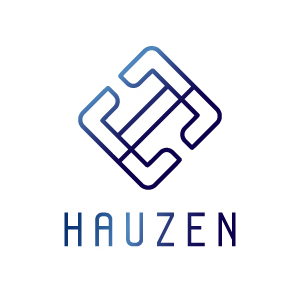On 23 May 2023, the Securities and Futures Commission (“SFC”) published its “Consultation Conclusions on the Proposed Regulatory Requirements for Virtual Asset Trading Platform Operators Licensed by the Securities and Futures Commission” (“Consultation Conclusion”). Hauzen LLP was one of the 152 respondents to the consultation that took place between 20 February 2023 and 31 March 2023. We welcome the Consultation Conclusion which sets out a new regulatory framework based on the Anti-Money Laundering and Counter-Terrorist Financing (Amendment) Bill 2022 that will come into force on 1 June 2023 (“AMLO VASP regime”). We believe that the new framework will help to establish Hong Kong as a virtual asset (“VA”) hub and attract quality crypto service providers to obtain a license in Hong Kong.
Set out below is a summary of the main issues addressed in the Consultation Conclusion.
1. Should Licensed Platform Operators Be Allowed to Provide Services to Retail Investors?
Following widespread support from the respondents for retail trading, the SFC will allow licensed VA trading platforms to provide their services to retail investors, provided that such platforms comply with various investor protection measures covering onboarding, governance, disclosure and token due diligence and admission. Despite the SFC’s approval for retail trading by licensed VA trading platforms, the SFC has made it clear that it is neither an endorsement nor does it guarantee any virtual asset’s commercial merits. Investors should beware of the risks involved in investing in virtual assets.
2. Implementation of Investor Protection Measures
Apart from discounts on fees or charges, the SFC explicitly prohibits gifts tied to the trading of a specific VA in the Guidelines for Virtual Asset Trading Platform Operators (“VATP Guidelines”). The SFC also took the opportunity to remind platform operators that any product-specific materials posted must be factual, fair and balanced. The reason for such a prohibition is to ensure that investors are fully aware of the risks associated with the VA that they would like to invest in, rather than being enticed to invest purely because of gift offers.
3. Insurance or Compensation Arrangement
When considering the extent of VAs being covered by the insurance or compensation arrangement, the SFC compared the storage risks that exist in the traditional financial markets and the VA context (i.e. cold storage and hot storage).
The SFC likened the risks of client VAs being held in cold storage with the custody risks associated with client assets in the traditional financial markets, namely misappropriation by employees and through fraud. Given that clients of traditional financial institutions are not fully insured against the loss of their assets, the SFC accepted market’s proposal to lower the coverage threshold for client VAs held in cold storage. The insurance coverage threshold has been lowered to 50% (from the 95% originally proposed) for client VAs held in cold storage, provided that 98% of client VAs are held in cold storage.
With respect to client VAs being held in hot and other storage, trading platforms should fully cover the compensation arrangement of such assets because the risks associated with hot and other storage, namely hacking and cybersecurity risks, do not readily exist in the custody of client assets in the traditional financial markets.
It is clear that the SFC has placed the issue of safe custody of client VAs as its top priority by introducing different measures to reduce the risks from VAs readily held in hot storage. To that end, the proposed VATP Guidelines provide that seeds and private keys should be securely stored with appropriate certification, and that there is flexibility in adopting different custody solutions following the determination of such certification.
4. Trading in VA Derivatives
The SFC noted respondents’ general support for allowing licensed VA trading platforms to provide trading services in VA derivatives, particularly the importance of derivatives trading to institutional investors, and will conduct a separate review in due course.
5. Other Adaptations to Existing Requirements
With reference to paragraph 7.26 of the proposed VATP Guidelines, the SFC has prohibited services common in the VA market, including earning, deposit-taking, lending and borrowing. The SFC reasoned that the primary business of a licensed VA trading platform is to act as an agent and assist in the matching of orders between clients. Any other activities would likely give rise to conflicts of interest and are therefore prohibited at this point in time.
In relation to algorithmic trading, licensed platforms’ clients can use their own algorithmic trading system when trading on the platforms. Platform operators, however, are strictly prohibited from providing such services to their clients.
6. Disciplinary Fining Guidelines
The SFC stated that VA trading platforms licensed under the Securities and Futures Ordinance (“SFO”) and the Anti-Money Laundering and Counter-Terrorist Financing Ordinance (“AMLO”) will be subject to the same set of punitive criteria, namely the Disciplinary Fining Guidelines annexed to the Consultation Conclusion, regardless of the legislation under which they are licensed.
The proposed Disciplinary Fining Guidelines detail the factors that the SFC will consider when determining whether to impose a fine and, if so, the appropriate amount of a fine. As each decision is case-specific, the SFC will not adhere to a rigid framework by judging the severity of the misconduct based on the amount of profit gained or loss avoided. In determining the appropriate fine, the SFC will consider factors including the positions of the involved individuals, levels of sophistication of the market participants affected by the misconduct and the remedial actions taken by the persons involved.
It should be noted that paragraph 5.1(k) of the proposed VATP Guidelines provides that the “senior management of a Platform Operator should bear primary responsibility for ensuring the maintenance of appropriate standards of conduct and adherence to proper procedures by the Platform Operator”. The senior management of a licensed VA trading platform generally include its directors, responsible officers and managers-in-charge. The SFC will issue further guidance in the form of FAQs regarding the augmentation of the accountability of senior management, which should include detailing each senior manager’s duties and obligations.
7. Transitional Arrangements and Implementation Details of the New Regulatory Regime
Despite the new regulatory regime coming into effect less than a week after the Consultation Conclusion, the SFC acknowledged there are still an abundance of questions that remain to be answered after the Consultation Conclusion, including transitional arrangement-related matters for existing VA trading platforms. In response, the SFC will issue further guidance in the form of circulars, FAQs and a licensing handbook for common questions relating to the new regime.
Nevertheless, the SFC has recommended that, in order to ensure business continuity and avoid contravention of the licensing regimes, it “would be prudent for VA trading platforms to apply for approvals under both the existing SFO regime and the AMLO VASP regime”. The SFC acknowledges that there may be overlaps and therefore will “adopt a streamlined application process so that only a single consolidated application needs to be submitted for a dual licenses application”.
Further, one responsible officer may be concurrently approved under both the SFO and AMLO. In that event, a VA trading platform licensed under the SFO and AMLO is not required to maintain four different responsible officers. In consideration of the “lack of talent with both virtual asset and traditional securities experience”, the SFC will adopt a pragmatic approach and will also provide further guidance.
8. Implementation Timetable
Based on the discussion points listed out in the Consultation Conclusion, the SFC has annexed the final version of the following to the Consultation Conclusion:-
- VATP Guidelines;
- Guideline on Anti-Money Laundering and Counter-Financing of Terrorism (For Licensed Corporations and SFC-licensed Virtual Asset Service Providers);
- Prevention of Money Laundering and Terrorist Financing Guideline issued by the Securities and Futures Commission for Associated Entities of Licensed Corporations and SFC-licensed Virtual Asset Service Providers; and
- Disciplinary Fining Guidelines.
The final form of the above items was published in the Gazette on 25 May 2023 and became effective on 1 June 2023. The SFC has stated that it will also publish further guidance, in order to ensure proper understanding of the implementation of the new regulatory regime.
To find out more on how Hauzen LLP can assist you obtain a VASP licence or for any help on financial regulations in Hong Kong, please contact us today.







